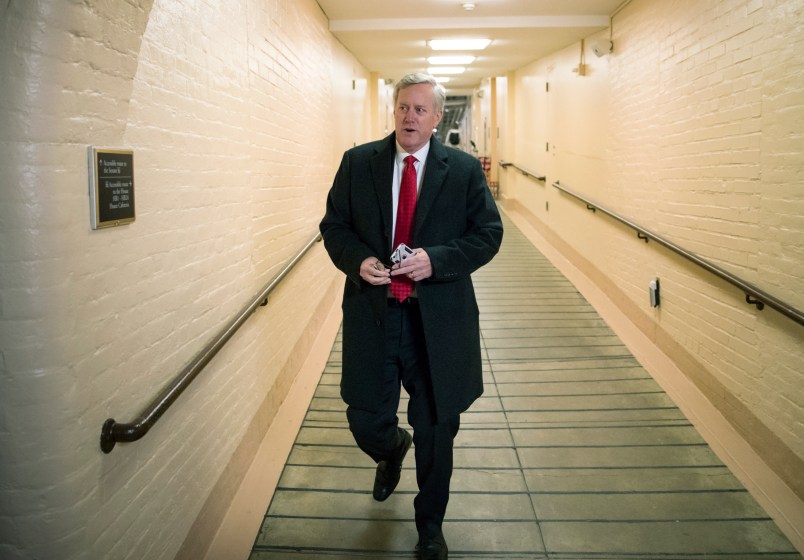Funding for the government expires at the end of next week, and Republicans are crafting a plan that would fund the military for a full year while only giving the rest of the government a short-term stop-gap until Jan. 19.
As the outline of that spending deal emerges, GOP lawmakers confirmed to TPM that it will include five years of funding for the Children’s Health Insurance Program (CHIP), which expired at the end of September, but will not include two policies to stabilize the health insurance market that Sen. Susan Collins (R-ME) demanded in exchange for voting to repeal the individual mandate in the Republican tax bill.
Collins told TPM on Thursday that if the House sends over a funding bill without her two demands—one provision restoring the cost-sharing reduction payments to insurance companies that President Trump defunded earlier this year, and another creating a multi-billion dollar reinsurance program to stabilize the individual market—the Senate could simply vote to insert them and kick the bill back to the House.
Asked what she plans to do if the House strips them out, and whether she would vote for the tax bill without knowing the fate of the provisions, Collins appeared irritated.
“You know, I’m really tired of the cynicism of the press,” she told TPM with a tight smile. “Why don’t we wait and see what happens?”
The House’s influential far-right Freedom Caucus has all along been staunchly opposed to Collins’ proposals, deriding them as corporate welfare and a “bailout” for health insurance companies. Even without those proposals included, Freedom Caucus Chair Mark Meadows (R-NC) told TPM he anticipates a “block of perhaps no’s” on the spending bill, but thinks it can still pass. Whether a deal that heavily favors military spending over all else can pass the upper chamber, however, is another story.
“There were a number of us who thought this play-call would meet great resistance in the Senate, and that still is certainly a possibility,” Meadows said. “Some Democrats will certainly push back.”
If the Senate strips out the defense portion of the deal and sends back just the continuing resolution to the House, some Republicans say it would be in danger of failing, triggering a government shutdown.
“No, no, I doubt the defense folks would go for that one,” Rep. Dave Brat (R-VA) told TPM.
Democrats may also raise a stink about the CHIP provision, which offsets funding for the desperately needed program by gutting Obamacare’s public health and prevention fund.
Though Democrats are in the minority in both the House and Senate, their votes are needed to keep the government open, giving them a rare modicum of leverage. With that in mind, Democratic leaders are currently agitating for many of their priorities to be included in the end-of-the-year spending bill, including CHIP, funding to address the opioid crisis, natural disaster recovery funds for Puerto Rico, Texas, California and other states hit by fire, wind and water, and a solution for the hundreds of thousands of young immigrants stripped of their legal status by President Trump.
But some Democrats say that last demand is getting shoved aside.
“I don’t think the word ‘anger’ is appropriate, but it has reached the point that it’s really frustrating,” Rep. Raul Grijalva (D-AZ) told reporters Thursday. “There is some sense that this issue has been put on the back burner many times, even when we had the majority.”
On his tweed jacket, Grijalva wore an orange pin emblazoned with 122, the number of DACA recipients who are losing their protection from deportation every day.
“Waiting for Trump to do something right is not going to happen,” he said. “He’s going to continue to demand a head on a stick in order to do anything for the DACA kids. So for us not to use the leverage we have to try to push this … is ridiculous.”
As negotiations behind closed doors continue with an eye on the Dec. 22 funding deadline, any number of provisions could be added, subtracted, or amended in the coming week.
“As you know, things change minute by minute up here, or second by second,” Meadows said with a laugh. “This is the plan right now. As long as we stick with this, I don’t see an issue. Hopefully we’ll be able to get this in place and proceed with funding the rest of the government in a normal appropriations process in January.”










